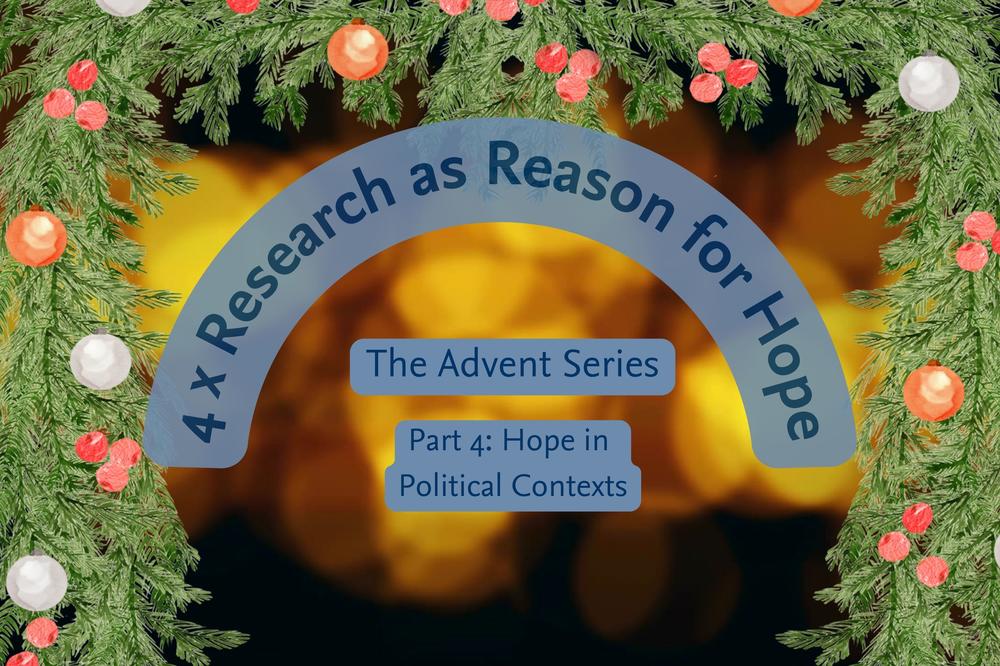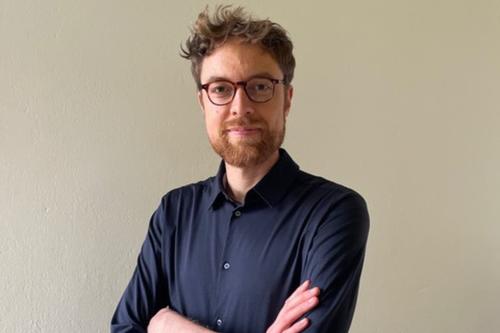“Hope also has a great deal to do with action”
Part 4 of the Advent Series on Research as Reason for Hope: Philosopher Jakob Huber on Hope in Political Contexts
Dec 20, 2022
Not everything is as grim as it seems. During the Advent season, we are presenting four research topics that offer reason for hope.
Image Credit: Office of Communication and Marketing
Our society is increasingly polarized, not only due to the coronavirus crisis. What can we hope for in a democracy, if there is no common vision for the future? Jakob Huber, a philosopher at Freie Universität Berlin shares some ideas.
Mr. Huber, you are Principal Investigator of a junior research group called “Democratic Hope.” What exactly are you investigating?
Jakob Huber: We are examining the role of hope in democracies from the perspective of political philosophy. What is the significance of hope? Where might there be dangers? We started with the observation that we are living in a time of crises. In addition to the climate crisis, which everyone is talking about, the crisis in democracy is also mentioned time and again. Hope is particularly important in difficult times. It motivates and provides orientation. At the same time, hope is often suspected of leading to passivity and wishful thinking. We want to find out what citizens can hope for in democratic societies.
How do you define hope?
Jakob Huber: For many philosophers hope consists of a desire along with the belief that the realization of the desire is possible but not certain. Whether an exhaustive definition can actually be found that does justice to the diverse role of hope in our lives remains an open question. In abstract terms, I would say that hope is our sense for the possibility of the good. In hoping, we see the future as open. This is what distinguishes hope from other attitudes such as optimism.
Jacob Huber is Principal Investigator of Democratic Hope, a junior research group at Freie Universität Berlin.
Image Credit: Xaver Böhm
Voter turnout is falling, and populist parties are gaining strength in many countries. What should we hope for in a democracy?
Jakob Huber: That is exactly what we want to find out. How should institutions be set up and democratic discourses designed so that people can look to the future with hope and not with fear or uncertainty?
Democracy is a way of life that is not directed toward an ultimate goal. This makes it particularly difficult because we cannot pin our hopes on a specific state of affairs to be obtained. People who live in a democracy must constantly renegotiate the object of hope; it is an ongoing process. In some cases, however, societies are so polarized that people can no longer agree on a common vision of the future and accordingly no longer share hopes.
Are you personally hopeful that this situation will change?
Jakob Huber: Hope also has a great deal to do with action. We need to avoid thinking that we can remain passive and readily observe whether there is reason for hope or not. As a political community, we ourselves are responsible for realizing our hopes.
It is, however, important for democracy to provide forums and structures that enable people to reach an understanding about shared hopes. These are not currently in place though. I think the answer to the crisis of democracy must be to dare more democracy. New structures need to be created in civil society that provide space for people to meet and exchange ideas in order to develop visions for the future.
Melanie Hansen conducted the interview. It was first published in German in campus.leben on December 16, 2022.


